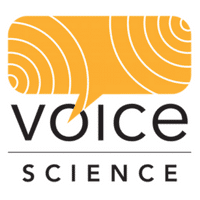Do these 6 things to Improve your PTE Pronunciation Skills
Follow these Voice Science strategies to improve your PTE Pronunciation score. Techniques developed by a certified speech pathologist.

PTE Pronunciation Scores play a massive role in achieving your needed score in the PTE Academic exam. It can be very stressful if you don’t know how to improve your PTE Pronunciation score.
Pronunciation can be very difficult to master for the PTE exam. Such issues are not usually related at all to comprehension and ability to form good sentence structures. Rather, if the sound code for English is not close to mainstream (ie., if sounds of English are deleted, distorted or incorrect) the pronunciation scores go down as the sound file registers error when read.
Pronunciation errors can cause a fluency impact. Fluency issues though can also exist according to how you release the rhythm and melody (intonation) of English. If the pattern is too close to mother tongue, it will register error as well.
#1 Watch T.V. to improve PTE Speaking
You probably think I’m nuts to say it and I suspect no teachers have told you to spend lots of time watching TV but I can guarantee this is a fantastic way to improve your English comprehension and flow. It’s one of the main ways I started speaking German more comfortably when I lived there. TV is really educational for language learning if you use it effectively.This doesn’t mean sitting there and turning into a brain blob! I want you to turn on local news or shows that fit your interest (there are plenty on cooking, sports (how about cricket?), even local sitcoms) but with a pen and paper beside you. Listen to the flow and movement of the pronunciation. Note strange sounds or mouth movements.
To improve your English pronunciation for PTE, you might need some 1-1 support from one of our speech pathologists but why not watch shows or YouTube channels that expose you to how locals say the words you are interested in. Zoom in on content that lets you hear the pronunciation of words of your field of expertise. To improve your command of English pronunciation for the professional setting, watch programs that cover formal, and industry related content.
For example, if you work or study in the finance sector watch reports direct from Wall street. Listen to the key words, pause and repeat back terms. There are so many industry terms that you know are important on paper, I’m sure you spell them correctly, but how much time have you spent on saying them correctly? Correct and clear English is reflected via pronunciation as much as grammar. Sure, we all have different accents but there are some big pronunciation milestones you will need to overcome if it is hard for you to differentiate between:
- wedgie ≠ vegie
- spreadsheet ≠ spread shit
- banking ≠ bunking
- stock ≠ stuck
Note the sayings you don’t know, note the sayings you can’t understand and try to decipher anything that is said too fast in the local accent to repeat back.
Repeat back the core content words and try to represent the stress rhythms of the native speaker. This will benefit your pronunciation in PTE and also in life… Remember, there is a life after you get your PTE Score so you might as well make all this hard work pay off for daily pronunciation as well!

#2 Integrate
A key risk factor of living overseas away from your homeland can be the risk of living in a vacuum alongside people who speak your first language. I’ve lived abroad for almost a decade in Germany, Bosnia Herzegovina, South Korea and Bulgaria! I know how easy it is to just chill with peeps who speak my lingo. This is normal and understandable and necessary at times. But, try to avoid living in a bit of a linguistic ghetto! Work at expanding your social circle. Don’t let misapprehensions regarding your English ability get in the way. Interacting and solidifying conversational ability in the local environment needs time and practice. The more time you give to it, the more strategic and flexible you will be at communicating and before you know it, you’ll be an expert. Don’t hold back! Placing yourself in environments where communication seems challenging forces you to keep speaking even when faces with some additional stress. Sound familiar? Yes, PTE subtests of course create stress when you do them because you don’t always know what to expect and nerves can completely sabotage your performance. Placing yourself in settings where communication is challenging in some ways simulates what the exam asks of you- speaking fluently and clearly when you have had little chance to prepare.
Get out more! Not only will benefit your communication confidence for PTE but your enjoyment of the local city will also increase.
Check These Groups 🔗
Check out great interactive groups like: Internations, MundoLingo, even things around your interests. There are some amazing groups that meet up around interests and it is not weird to be in a club! Some fabulous meet ups in my city of Melbourne include: Urban Sketchers (meet with locals and sketch the sights of your city), Running Clubs or even why not join a weekly class and learn something you’ve always wanted to do! Such initiatives will get you talking, interacting and socialising in meaningful environments so that you can better your communication and increase fluency around topics that are inspiring and meaningful to you.
#3 Slow down on the phone
PTE Speaking scores are not necessarily about speaking slowly, but reducing your speed on the phone in daily life will give you more time to feel the movement of sounds of English so that you can be flexible in the exam when needed. Mastering fluency and improving your PTE pronunciation especially if your first language has completely different stress patterns and intonation than English, often needs 1-1 training.
Speech pathologists are trained to measure speech rate and adjust it. This is what we do when addressing the speech fluency of people who stutter. Working 1-1 with a speech pathologist can allow you to learn how to modify your speech rate to achieve the clearest pronunciation possible along with the desired speed that we hypothesis PTE marking algorithms are wanting.
#4 Get a local library membership
This won’t cost you a cent and will immediately open up a huge catalogue of brilliant study materials. Begin listening to audio books, read by different English native speakers.
Add variety and interest to your daily commute to work or study and also benefit from listening to the speech features and rhythm of native speech patterns.
Segment your listen time with speaking activities. Pause the recording and recite back what the actor has said. Try to mimic the rhythm and tone of the speech patterns. Pay attention to long versus short vowels and try to show a big difference in your vowel durations.
Not only will this increase your ability to listen and comprehend audio information (as the exam requires) it will also open your mind to new conversation topics for daily life as well as give you the chance to learn something new!
#5 Do it differently
Most support for PTE Academic testing comes from English Language Teachers. While they are experts in their own right, many do not have the scientific insight into how the brain and muscles of the head and neck form pronunciation sounds. Speech pathologists are trained in the movement of the anatomy to create speech sounds and voice production. We are also highly skilled in behavioural therapy methods to create speech change. We are allied health professionals who work with a lot of medical and clinical problem solving. Where a physiotherapist solves and reduces muscle injury, a speech pathologist solves and corrects a pronunciation sound or voice behaviour and even things around communication rules like how to create better conversations, how to find topics for discussion, how to slow or increase speaking rate or how to reduce stuttering. Read more about What is a Speech Pathologist? with this fact sheet from Speech Pathology Australia.
Where ESL Teachers tend to take PTE Classes in groups, all our services are individual 1-1. This makes learning strategic, efficient and faster and can allow us to work harder towards your score deadlines.
If you’re wondering at this point, ‘how do I know exactly when and where to use the Schwa in English words and sentences?’, our Speech Pathologists have done that work for you!
We use evidence-based methods to systematically equip you with practical pronunciation tools and strategies to identify these in your English speaking. We offer online pronunciation training that is tailored to your specific needs and goals.
Your Voice Might be a Factor too
Another benefit of this assessment by a speech pathologist is the chance to gain insight into your voice production for the PTE Exam. Sometimes, particularly among females, the speaking pitch will result in low scores for pronunciation and speaking overall. This is likely if the vocal pitch is too high. We are trained professionals to assess vocal function and can ensure to investigate immediately if that if this is a factor that might be contributing to your poor success in the PTE Pronunciation subtests. We will customise your assessment to your needs for PTE and will promptly engage in getting voice diagnostic information where we see fit.
Other test takers experience issues with breathing. Some run out of breath in subtests, others demonstrate breathing patterns that are too audible to achieve the desired scores for pronunciation. In some cases, PTE may not be the appropriate test for you to pursue, particularly if there are medical factors impacting like poor respiratory health or stuttering. Allow a speech pathologist who has intricate knowledge of how the voice and breath works for speaking to determine scientifically what is going wrong before spending $100’s more on failed tests or courses that don’t change your scores despite their promises.
Stuck? Try a query form
This form will take you from some FAQ’s about our courses in a fun way.
You will also get the chance to enter specific questions, that our team will respond too. If you can’t find an answer to your question, try this form, or better still give our friendly receptionists a call.
Watch the tutorial for this blog now from Voice Science TV 🎥
Put a Face to Voice Science
Our mini video tutorials are designed to give you actionable strategies to improve your: Speaking, Vocabulary, Voice Tone, Pronunciation, Accent, Fluency, Social Communication, Language for Leadership & Workplace Communication.
This is a short introduction to things to consider if you wish to change your pronunciation. Get more by visiting us in person or online for an assessment.
English Pronunciation Tips
Find bonus tips for a mix of different language backgrounds
See loads of our accent tips for non-native speakers.
We have heaps of tips for many language backgrounds including:
- Thai Accent Reduction Tips
- Japanese Accent Reduction Tips
- Arabic Accent Reduction Tips
- Bulgarian Accent Reduction Tips
- Russian Accent Reduction Tips
- Mandarin Accent Reduction Tips
- Cantonese Accent Reduction Tips
- Vietnamese Accent Reduction Tips
- Spanish Accent Reduction Tips
And so many more!

